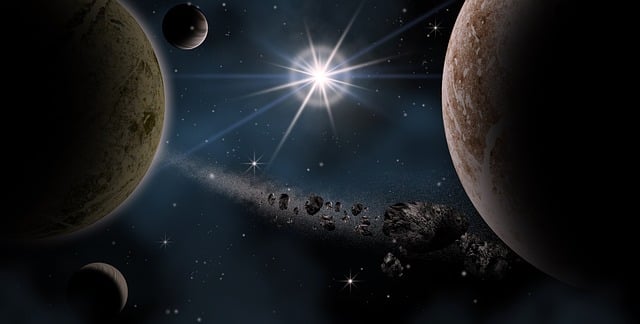A meteorite that landed in a sheep field was repeatedly broken and reassembled on its journey through space, according to scientists. The latest analysis of the Winchcombe meteorite suggests that water may have played a role in its violent odyssey.
First meteorite on British soil in 30 years
The Winchcombe meteorite is the first to be found on British soil in 30 years. Study co-author Dr Diane Johnson said research like this helps to understand the formation of the solar system.
"The Winchcombe meteorite is an exceptional piece of space history." she said. The rock traveled for millions of years before arriving on Earth.

The journey of a meteorite through space
Scientists said that in its early days, the meteorite was a dry rock containing ice, but over millions of years the ice melted into a ball of mud that was repeatedly broken up and reassembled.
The findings suggest that it formed from pieces of other rocks joined together – like broken pieces from multiple puzzles joined together – in what is called a breccia.
New knowledge from meteorite analysis
Dr Luke Daly from the University of Glasgow, who led the research, said: “It was fascinating to discover how fragmented the breccia was in the Winchcombe sample we analyzed.
If you think of the Winchcombe meteorite as a puzzle, what we saw when we analyzed it was as if each piece of the puzzle had also been cut into smaller pieces and then mixed together in a bag full of fragments from the other seven puzzles.
"However, what we have uncovered in trying to unravel the puzzle through our analyses is a new look at the very fine details of how rock was altered by water in space," he said.

Meteorite landing on Earth
The first piece of the Winchcombe meteorite landed on a driveway in February 2021, shortly after it was spotted streaking across the sky as a fireball. This specimen was recovered just hours after it entered Earth's atmosphere.
More fragments were found in the field a few days later.
The significance of the Winchcombe meteorite
The Winchcombe meteorite belongs to a rare class of rocks known as carbonaceous chondrites. They make up about three percent of all meteorites collected on Earth and are thought to contain unchanged chemicals from the formation of the solar system more than four billion years ago.
Analyzing these minerals could help scientists find answers to questions like: How did the solar system evolve and how did Earth get its water?
A team of international researchers collaborated on the study, which is published in the journal Meteoritics And Planetary Science.



